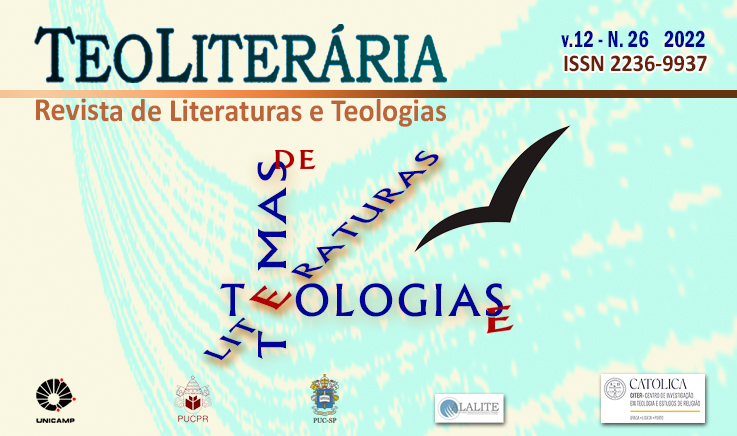Renato Russo e o desencanto político-existencial dos anos 80
DOI:
https://doi.org/10.23925/2236-9937.2022v26p76-102Palabras clave:
Rock brasileiro, Legião Urbana, Renato Russo, Anos 80Resumen
O artigo pressupõe que muitas canções produzidas por bandas de rock brasileiro no início dos anos 80 nos ajudam a compreender o desencanto político e existencial de muitos jovens da época. O texto recupera informações sobre esse momento histórico da cultura brasileira, delimitado como marco temporal (anos 80 até meados dos anos 90), focalizando na produção poético-literária de Renato Russo, compositor, letrista e vocalista da banda Legião Urbana. O artigo sustenta que Renato Russo oferecia em suas letras um verdadeiro retrato de uma fatia da juventude de classe-média da época, principalmente jovens nascidos e/ou criados na Capital Federal (Brasília) que enfrentaram a situação contraditória de serem filhos de funcionários-públicos e estatais em pleno vigor da ditadura militar. O clima cultural de desencanto, burocratização, pressões e conflitos familiares foi muito bem percebido pelo letrista que, através das canções da banda expressava essas angústias e anseios de liberdade. O texto busca pistas para compreender que o grande sucesso de Renato Russo junto aos jovens da época, deve-se ao fato de ter conseguido oferecer em suas letras o desencanto político e existencial dessa geração.
Citas
CALVANI, Carlos Eduardo. “Existirmos... a que será que se destina? Choque ontológico, angústia e coragem de ser na canção Cajuína”. Revista Eletrônica Correlatio, vol. 16, n. 01, junho de 2017, p. 99-113. Acesso disponível em: https://www.metodista.br/revistas/revistas-ims/index.php/COR/article/view/7785.
LEMOS, Antonina. Renato Russo foi ‘irmão mais velho’. Jornal Folha de São Paulo. Caderno Folhateen, São Paulo, segunda-feira, 6 de junho de 1994.
LEONI, Carlos, “Entrevista com Renato Russo”. Letras, músicas e outras conversas, Rio de Janeiro: Gryphus, 1995.
MARCELO, Carlos. Renato Russo, o filho da revolução. São Paulo, Editora Planeta, 2016.
MENEZES, Thales de. De guru a mártir teen. Jornal Folha de São Paulo. São Paulo, 12 de outubro de 1996.
PEÇANHA, Dóris Lieth Nunes. Movimento Beat – abordagem literário, sócio-histórica e psicanalítica. Petrópolis: Vozes, 1988.
PRADO, Gustavo dos Santos. A imagem e o artista: a Legião urbana dentro de sua própria arte. Anais do III Encontro Nacional de Estudos da Imagem. Londrina, Universidade Estadual de Londrina, 2011. Disponível em: http://www.uel.br/eventos/eneimagem/anais2011/trabalhos/pdf/Gustavo%20dos%20Santos%20Prado.pdf.
RUSSO, Renato. “Renato Russo fala sobre o novo disco do Legião Urbana”. Revista Amiga, Rio de Janeiro, Ed. Bloch, 01 de janeiro de 1990, p. 19.
TILLICH, Paul. A Coragem de Ser (1950). Trad. Eglê Medeiros, São Paulo, Paz e Terra, 1972.
Publicado
Cómo citar
Número
Sección
Licencia
Derechos de autor 2022 Teoliteraria - Revista de Literaturas y Teologías (On Line) ISSN 2236-9937

Esta obra está bajo una licencia internacional Creative Commons Atribución 4.0.
La Teoliteraria - Revista Brasileira de Literaturas e Teologías es detentora de los derechos autorales de todos los artículos publicados por ella. La reproducción total de los artículos de ésta revista en otras publicaciones, o para cualquier otro fin, por cualquier medio requiere autorización por escrito del editor de este periódico. Reproducciones parciales de artículos (resúmenes, abstrac, más de 500 palabras de texto, tablas, figuras y otras ilustraciones) deberán tener permiso por escrito del editor y de los autores.

